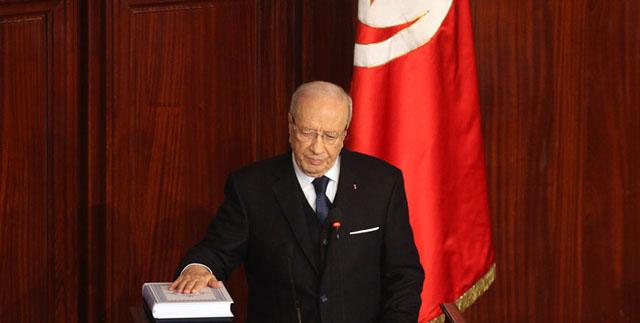You are here
'Tunisia ripe for recovery from post-revolt chaos'
By AFP - Sep 06,2014 - Last updated at Sep 06,2014
TUNIS — Tunisia has stabilised from the fallout of the 2011 revolution and is now ripe for investment in its battered economy, Prime Minister Mehdi Jomaa told AFP in an interview.
Speaking ahead of the "Invest in Tunisia: Start-up democracy" conference to be held Monday, Jomaa said Tunisia's new government was upbeat but realistic about a recovery.
"We expect a strong signal from the entire political, financial and business communities to say that today there's confidence in Tunisia's future," said the premier.
"We also expect our partners to spend and to actually invest in projects," added Jomaa, who came to power in January tasked with leading Tunisia out of a political crisis and preparing fresh elections.
Thirty countries are to attend the conference aimed at showcasing investment opportunities in Tunisia, where an uprising against longtime president Zine El Abidine Ben Ali triggered the Arab Spring.
But Jomaa declined to declare his expectations, noting that at "donor conferences, we have seen that it doesn't work: They create hope but achieve little."
The purpose of the conference "is not to put forward figures, but rather to generate interest" in projects that are to be presented on Monday.
Sustainable Development Minister Hedi Larbi told a news conference Thursday that Tunisia would unveil 22 projects at an overall cost of around 12 billion dinars (more than five billion euros/$6.6 billion).
The central bank said last week Tunisia's economic growth slowed to 2 per cent in the second quarter of 2014 from 2.8 per cent a year earlier.
A recovery is all the more important for Tunisia as poverty and unemployment were among the key issues that sparked the 2011 uprising that toppled Ben Ali.
In the wake of the uprising, Tunisia was rocked by violence blamed on hardline Islamists who were suppressed under the former dictator, paralysing the country's institutions and its economy.
Jomaa heads an independent government tasked with leading Tunisia out of the festering crisis fuelled by violence and mistrust between the Islamist Ennahda Party — the majority in the assembly — and its opponents.
'Confronting fears'
Jomaa gave assurances that Tunisia was evolving "from a planned and politically oppressive state to one that is rather regulatory".
"There are a few years of sacrifice that we must see out," he said. "We have worked on macroeconomic stabilisation and on reducing the state budget deficit, but the economy goes through long cycles: Decisions are taken today and the benefits are seen in two, three years."
Related Articles
The United States and Tunisia signed this week a $500 million loan guarantee agreement that will help Tunisia raise money at affordable rates from commercial capital markets.
Anti-Islamist Beji Caid Essebsi, 88, was sworn in Wednesday as Tunisia's first freely elected president vowing to work for national reconciliation, four years after an uprising that sparked the Arab Spring.
TUNIS — Tunisia's parliament approved on Saturday a long delayed law to attract foreign investment, which fell sharply after the uprising in


















